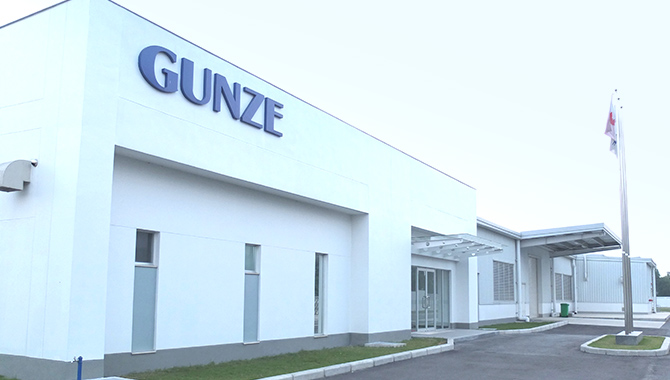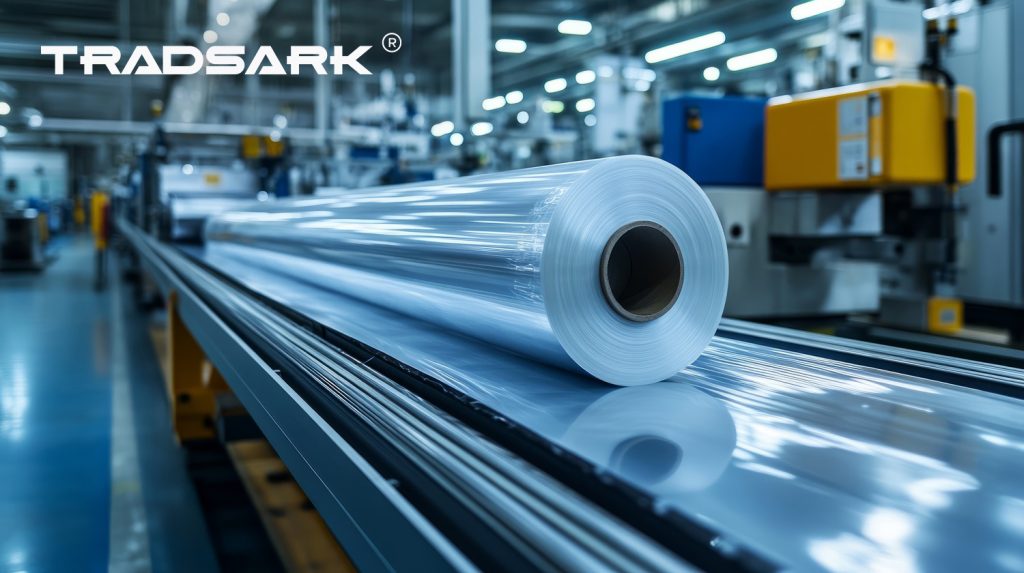Japan is renowned worldwide for its high-performance plastic films, particularly Aluminum Metallized CPP, BOPP, and BOPET films. These films are widely used in food packaging, electronics, agriculture, decorative applications, and industrial insulation. The Japanese metallized film industry combines advanced materials, precise manufacturing techniques, and cutting-edge metallization technology to provide films with superior barrier properties, mechanical strength, optical clarity, and heat resistance.
The increasing global demand for high-quality metallized films is driven by sectors such as packaging for snacks, coffee, pharmaceuticals, and ready-to-eat meals, as well as reflective agricultural films, electronics insulation, and decorative packaging solutions. Japanese manufacturers are distinguished by their ability to produce films that meet stringent performance, sustainability, and regulatory standards, making them trusted suppliers both domestically and internationally.
This comprehensive guide explores the top five Japanese manufacturers, their technological capabilities, production capacities, factory distribution, export markets, and application insights. Additionally, we provide details about Tradsark, a global metallized film supplier serving the Japanese market.
1. Toray Industries, Inc.

Overview: Toray Industries is a multinational corporation headquartered in Tokyo, Japan. Founded in 1926, Toray has evolved into a global leader in fibers, plastics, high-performance films, and composite materials. Its film division focuses on BOPET, CPP, and specialty films, serving industries ranging from packaging to electronics.
Annual Production Capacity: Over 250,000 tons/year of plastic films, including BOPET, CPP, and co-extruded films.
Plant Distribution: Toray operates production facilities in Shiga, Ehime, and Gifu in Japan, and overseas plants in Malaysia, Thailand, and France, catering to both domestic and international markets.
Export Markets: Europe, North America, Southeast Asia, China, and other emerging markets.
Technological Capabilities:
- BOPET & CPP Films: Toray’s films provide excellent mechanical strength, dimensional stability, and thermal resistance.
- Metallization & Coating: Toray has advanced vacuum metallization, corona treatment, and coextrusion technologies, enabling aluminum layers to adhere consistently for reflective or barrier applications.
- Barrier Properties: Their films excel in moisture, oxygen, and light resistance, making them ideal for food packaging, electronics insulation, and pharmaceutical applications.
Applications:
- Food Packaging: Snacks, coffee, and instant noodles with extended shelf life.
- Electronics: Capacitor insulation, OLED display backings, and solar panel reflective layers.
- Agriculture: Reflective mulch films to enhance plant growth.
Recent Developments:
- Expansion of Lumirror® release film production at Gifu Plant by approximately 60% to meet MLCC capacitor market growth.
- Continuous R&D in thin-film barrier technology and sustainable recycling initiatives.
Strengths & Limitations:
- Strengths: High-quality, reliable films with strong metallization adhesion; extensive global network; advanced R&D.
- Limitations: Higher costs, especially for price-sensitive packaging customers; CPP metallization may require outsourced processing.
2. Toyobo Co., Ltd.

Overview: Toyobo, headquartered in Osaka, Japan, is a major manufacturer of fibers, functional materials, and plastic films. Established in 1882, Toyobo has become a key innovator in BOPP and metallized films, focusing on sustainability and functional barriers.
Annual Production Capacity: Approximately 120,000 tons/year of BOPP and PET specialty films.
Plant Distribution: Factories in Shiga, Tsuruga, and Osaka, with international facilities in the USA and Southeast Asia.
Export Markets: North America, Europe, Middle East, and Asia.
Technological Capabilities:
- BOPP Films: High-quality, uniform films suitable for food packaging, pharmaceutical blister packs, and industrial wraps.
- Functional Films: Barrier films with moisture, gas, and odor resistance.
- Sustainability Initiatives: ISCC Plus certified bio-based BOPP films, promoting recyclability and environmental responsibility.
Applications:
- Food Packaging: High-barrier BOPP films for flexible pouches, snacks, and coffee.
- Pharmaceutical Packaging: Blister packs and laminated films requiring high clarity and barrier properties.
- Industrial Applications: Insulating films, labels, and decorative laminates.
Recent Developments:
- Launch of bio-based BOPP films to support mono-material packaging initiatives.
- Investment in functional barrier films that reduce the need for aluminum layers.
Strengths & Limitations:
- Strengths: Innovation in sustainability, high-quality BOPP films, and strong brand reputation.
- Limitations: Pure metallized CPP or BOPP may require cooperation with external metallization processors.
3. Mitsubishi Polyester Film (Mitsubishi Chemical Group)

Overview: Mitsubishi Chemical, a leading Japanese chemical conglomerate, produces high-performance BOPET films through its Mitsubishi Polyester Film division. Its HOSTAPHAN® brand is globally recognized.
Annual Production Capacity: ~180,000 tons/year globally.
Plant Distribution: Japan, Germany, USA, Indonesia.
Export Markets: Over 100 countries worldwide, including Europe, North America, and Asia.
Technological Capabilities:
- BOPET Films: High transparency, strength, heat resistance, and dimensional stability.
- Metalized & Coated Films: Suitable for decorative packaging, reflective insulation, and electronics.
- Environmental Compliance: Halogen-free flame-retardant films and recyclable solutions.
Applications:
- Food & Beverage Packaging: Metallized PET for coffee, tea, and snack pouches.
- Electronics: Capacitor insulation, reflective OLED substrates, solar panels.
- Industrial & Decorative: Laminates, gift wraps, and reflective films.
Strengths & Limitations:
- Strengths: High-quality PET films with consistent performance; strong global presence; environmental focus.
- Limitations: Harder films may reduce flexibility; metallization adds processing complexity; higher cost.
4. RM Tohcello Co., Ltd. (Mitsui Chemicals Group)

Overview: RM Tohcello specializes in BOPP and CPP films, offering metallized films for food, gift, and industrial packaging.
Annual Production Capacity: Over 100,000 tons/year.
Plant Distribution: Japan (Shizuoka, Kumamoto), with Southeast Asian facilities.
Export Markets: Asia, Middle East, Europe.
Technological Capabilities:
- BOPP/CPP Films: Excellent sealability, transparency, and moisture resistance.
- Metallized Films: Collaborates with metallization processors for aluminum-coated solutions.
- Customized Laminates: Multi-layered structures for high-barrier and decorative purposes.
Applications:
- Food Packaging: Flexible pouches, snack films, and high-barrier layers.
- Gift & Decorative Packaging: Aluminum-coated films with high gloss and reflective properties.
- Industrial Use: Protective films for electronics and insulation.
Strengths & Limitations:
- Strengths: High-quality sealable films, innovative laminates, good surface treatment for metallization.
- Limitations: Requires external metallization; small batch customization may need negotiation.
5. Gunze Limited

Overview: Gunze, established in 1896, produces high-performance polyester and polypropylene films, including metallized variants for electronics, packaging, and industrial uses.
Annual Production Capacity: ~80,000 tons/year.
Plant Distribution: Japan, USA, China, Southeast Asia.
Export Markets: Asia-Pacific, North America, selective European regions.
Technological Capabilities:
- Metallized BOPET/BOPP Films: Reflective, barrier, and decorative films.
- Precision Engineering: Strong control over thickness, transparency, and metal adhesion.
- Sustainability: Focus on environmentally friendly coatings and recyclable films.
Applications:
- Electronics & Insulation: Reflective and protective layers.
- Food Packaging: Snack pouches, coffee packaging, laminated barrier films.
- Industrial & Decorative: Labeling, gift wraps, and specialty industrial applications.
Strengths & Limitations:
- Strengths: Precision engineering, environmentally conscious, good for specialty applications.
- Limitations: Limited high-volume output compared to Toray or Mitsubishi.
Applications of Metallized Films in Japan
Japanese metallized films are widely applied in:
- Food Packaging:
- Snacks, coffee, and instant noodles.
- High-barrier metallized films extend shelf life and maintain flavor.
- Pharmaceutical Packaging:
- Blister packs and medicinal sachets requiring oxygen and moisture protection.
- Agricultural Reflective Films:
- Mulch films enhance crop yield by reflecting sunlight and controlling soil temperature.
- Electronics & Industrial Insulation:
- Capacitor insulation, OLED displays, and underfloor heating reflective layers.
- Decorative & Security Packaging:
- Gift wraps, labels, and holographic effects requiring metallized films.
Comparison Table & Market Insights
| Company | Annual Capacity | Key Strengths | Export Markets | Special Applications | Limitations |
|---|---|---|---|---|---|
| Toray | 250,000 t | High-quality BOPET/CPP, advanced metallization | Europe, North America, SE Asia | Electronics, high-barrier packaging | High cost, CPP metallization may need outsourcing |
| Toyobo | 120,000 t | Functional BOPP, bio-based films | N.America, Europe, Middle East | Sustainable packaging, pharmaceuticals | Metallization often outsourced |
| Mitsubishi | 180,000 t | HOSTAPHAN® BOPET, consistent quality | Global 100+ countries | Food, electronics, solar panels | Hard films less flexible, higher cost |
| RM Tohcello | 100,000 t | Sealable BOPP/CPP, multi-layer laminates | Asia, ME, Europe | Flexible pouches, decorative packaging | Needs external metallization |
| Gunze | 80,000 t | Precision engineering, specialty films | Asia-Pacific, N.America | Industrial, decorative, electronics | Limited high-volume output |
Tradsark — Global Partner for the Japanese Market
Tradsark New Materials (Weifang) Co., Ltd. supplies high-quality Aluminum Metallized CPP, BOPP, and BOPET films to the Japanese market and beyond.
Advantages:
- Wide range including food-grade transparent CPP/BOPP/PET films.
- Strong aluminum adhesion, high barrier properties, and dimensional stability.
- Certifications: ISO9001, ISO14001, ISO45001, CE Food Grade.
- Flexible customization for small and large orders.
- Established markets in Central Asia, Russia, Southeast Asia, and growing exports to Japan.
Applications: Packaging, agriculture, electronics, insulation, and decorative solutions.
Contact:
- 📱 +86 190 0646 0458
- 📧 tradsark@gmail.com | info@tradsark.net
- 🌐 www.tradsark.net
Conclusion
Japan’s metallized film industry stands out for its advanced technology, quality, and global reliability. Top manufacturers like Toray, Toyobo, Mitsubishi, RM Tohcello, and Gunze provide diverse solutions across food, electronics, agriculture, and industrial applications. Meanwhile, international suppliers like Tradsark complement this ecosystem by offering competitive, certified, and customizable metallized films, serving the Japanese market and global clients.
Together, these companies create a robust supply chain ensuring that businesses worldwide have access to high-performance metallized films for a wide range of applications.


